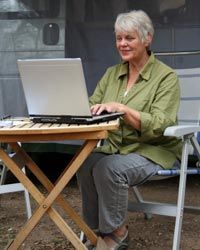Bob Dylan turned 70 last month. If his current schedule -- a worldwide summer tour and continued work on the second volume of his autobiography -- is any indication, Mr. Tambourine Man isn't planning on slowing down anytime soon. Nor are many of Dylan's fellow baby boomers, whether because they enjoy an active lifestyle or because they simply need to keep making money. Longer life spans and a roughly $6.6 trillion shortfall between what Americans need to retire and what they'll have when they reach retirement age mean that many retirees will continue to work, even if not in their previous career field [source: Pension Rights Center].
Retired couples can take the reins of a new career together by going into business with each other. Following are 10 business ideas that can put their decades of skill and expertise to work.
Advertisement




